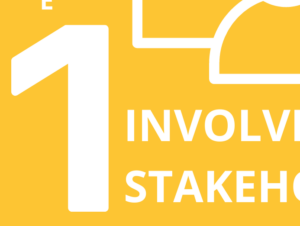Principles of Social Value
Our approach to measuring social impacts and making decisions is guided by the Principles of Social Value.
Our Assurance
This example underscores the importance of our assurance work, where we review measurement practices and provide developmental feedback on reports, individuals, organisations, and processes to ensure a more holistic assessment of social value.
How to improve
By gaining a better, more nuanced understanding of how activities result in changes to the lives of stakeholders, better decisions can be made. These decisions can lead to improvements in the lives of stakeholders by reducing negative impacts and increasing positive ones.
Our Principle
When applied effectively, the Principles of Social Value provide a framework for more efficient use of your organisation’s time and resources, and a way to communicate effectively to the world about the good work you do.

Principle 1
Involve stakeholders
These can be customers, employees, service users or the wider community. It is important to involve everybody affected by a decision to understand what they value. This enables you to measure impact.

Principle 2
Understand what changes
Articulate how change is created and evaluate this through evidence gathered, recognising positive and negative changes as well as those that are intended and unintended.

Principle 3
Value the things that matter
Making decisions about allocating resources between different options needs to recognise the values of stakeholders. Value refers to the relative importance of different outcomes. It is informed by stakeholders’ preferences.

Principle 4
Only include what is material
Establish the boundaries of what information and evidence must be included in an account of value to give a true and fair picture, and one that is based on the evidence from stakeholders so decisions taken focus on the changes that matter.

Principle 5
Do not over-claim
Only claim the value that activities are responsible for creating.

Principle 6
Be transparent
Demonstrate the basis on which the analysis may be considered accurate and honest, and show that it will be reported to and discussed with stakeholders.

Principle 7
Verify the result
Ensure appropriate verification of results in line with the decisions being supported. In cases where results are being reported to external audiences or are supporting significant decisions, independent assurance may be required.

Principle 8
Involve stakeholders
These can be customers, employees, service users or the wider community. It is important to involve everybody affected by a decision to understand what they value. This enables you to measure impact.

How does SROI fit into this?
Social Return on Investment (SROI) is a framework which applies all of the Eight Principles to account for social value.
For more information about SROI, you can download the free guidance documents on our Resources page.
Contact Us
Required fields are marked with *.


